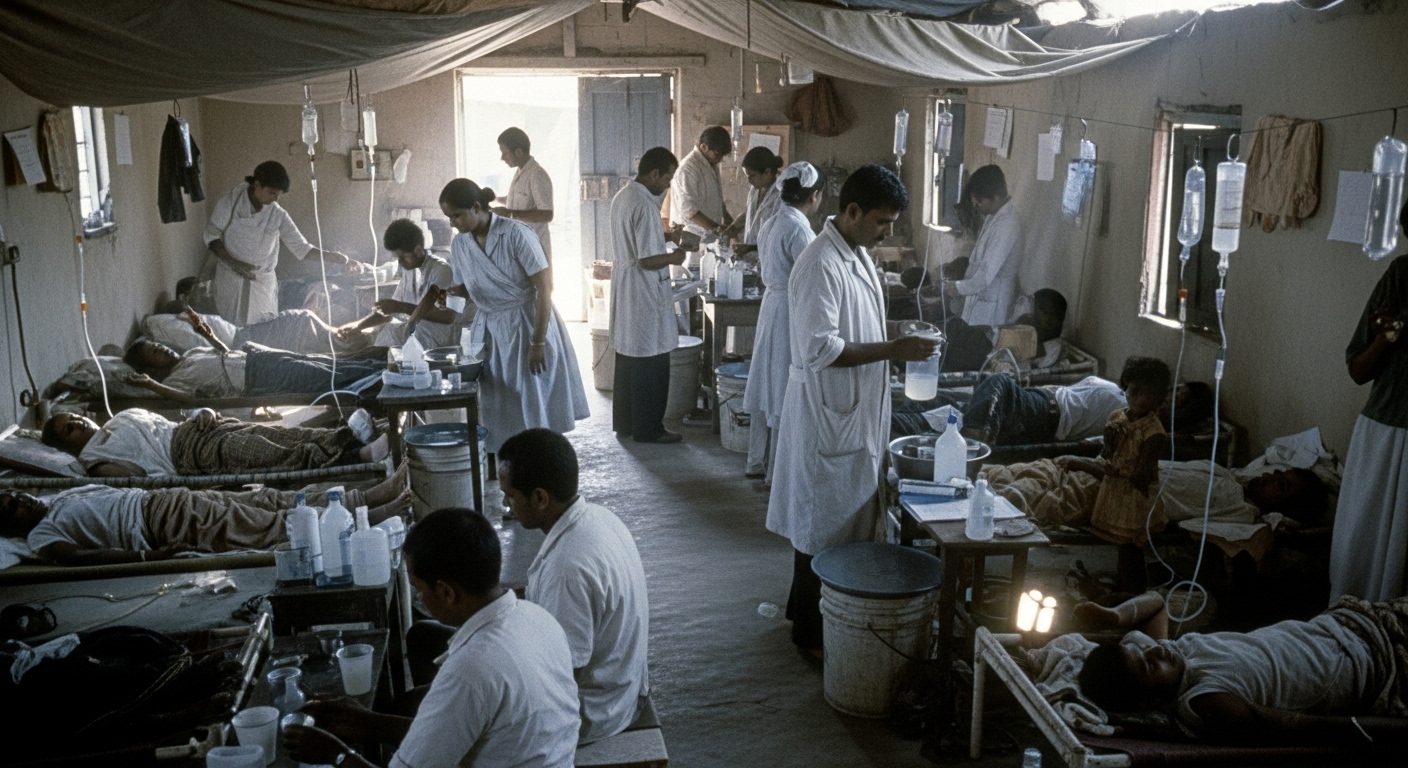Dr. Kumar’s Take:
Before oral rehydration became global policy, this 1968 Lancet study tested whether adults with cholera could be stabilized using only oral fluids. The results were transformative. It proved that with the right sodium and glucose concentrations, oral therapy could replace intravenous fluids even in severe disease.
Key Takeaways:
✔ Adults with cholera maintained hydration using oral therapy alone.
✔ Balanced sodium glucose solutions prevented dangerous electrolyte losses.
✔ IV fluids were needed only for initial stabilization in most cases.
✔ This trial established clinical proof for oral rehydration in severe dehydration.
Brief Summary:
- Question: Can oral fluids maintain hydration in adults with cholera once stabilized?
- Population: 30 adult patients with confirmed cholera.
- Design: Prospective open-label trial, 1968, Dacca, Bangladesh.
- Intervention: Oral rehydration solution containing sodium, potassium, chloride, bicarbonate, and glucose.
- Follow-up: Monitored for 48 hours with stool and urine output.
- Primary outcomes: Maintenance of electrolyte balance and clinical stability.
Study Design:
✔ Type: Clinical trial
✔ Measurements: Serum electrolytes, stool output, urinary sodium, vital signs
✔ Analysis: Balance studies comparing oral intake and losses
✔ Setting and timeframe: Dacca Cholera Hospital, late 1960s
Results:
- 28 of 30 adults maintained hydration without additional IV fluids.
- Serum sodium remained stable throughout treatment.
- Fluid balance was achieved using oral solution matched to stool output.
- Mortality: None.
- Side effects: Minimal; nausea in two patients resolved spontaneously.
How It Works (Biological Rationale):
- The sodium glucose cotransport mechanism enables fluid absorption even in cholera.
- Glucose facilitates sodium uptake through SGLT1, drawing water into the bloodstream.
- Oral replacement matches ongoing losses, preventing hypovolemia.
- Electrolyte ratios mirror physiologic plasma composition for safe correction.
Related Studies and Research
From Sodium Glucose Cotransport to Oral Rehydration – The physiologic foundation that made oral therapy possible.
Oral Fluid Therapy among Bangladesh Refugees – Field validation of the method in crisis conditions.
Global Burden of Acute Diarrheal Disease – Why scalable therapies were urgently needed.
Oral Rehydration for Adults: Treatment Guide – How clinicians apply the same principles today.
Podcast: The Simple Drink That Saved Millions: The Story of Oral Rehydration Solution
Frequently Asked Questions:
Why was this study so pivotal?
It was the first rigorous proof that adults with cholera could maintain hydration with oral therapy alone, eliminating the need for continuous IV fluids.
Did any patients deteriorate?
Only two required brief IV support at the start, after which oral maintenance was successful.
How did this influence global health policy?
It demonstrated safety and feasibility, paving the way for large-scale adoption by WHO and UNICEF.
Conclusion:
This early Lancet study confirmed that oral rehydration could sustain even severe cholera cases once initial stabilization was achieved. It marked the turning point from purely hospital-based IV therapy to community-level oral treatment that would save millions.


